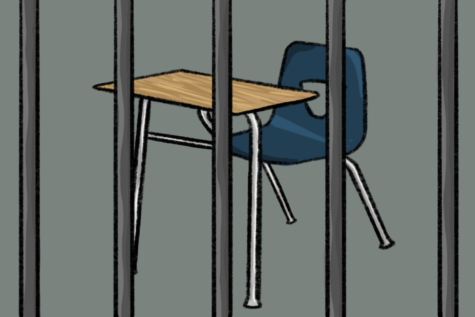OPINION | Tulane attendance policies demonstrate lack of concern for student health

Tulane University students are familiar with the university’s attendance policies stipulated in Tulane’s Academic Policies handout. The terms “excused absence” and “unexcused absence,” though not used explicitly in the Academic Policies, are two distinct terms that are certainly familiar to students and faculty.
According to Tulane’s Academic Policies, attendance policies are up to the discretion of the professor. The class attendance policy section is, otherwise, quite vague. With regard to excuses for missed classes and the consequences for excessive absence, the policy states, “Instructors are authorized to lower the grades of students who are absent excessively without a satisfactory excuse or do not make up work missed because of absences.” However, the policy does not specify what exactly classifies as a “satisfactory” excuse.
An excused absence refers to an absence resulting from a “legitimate” excuse, such as a doctor’s appointment, family emergency or verified illness. An unexcused absence, on the other hand, is the term used to refer to the variety of other reasons that students may be unable to physically attend class on a given day.
This second type of absence is generally deemed by professors as illegitimate and, as the name suggests, inexcusable. Unexcused absences, accumulated over time, can be detrimental to a student’s grade.
The colloquial terminology that has come to surround university attendance policies is immediately problematic. According to these terms, class absence can be classified as either legitimate and excusable or the opposite.
Moreover, the university places the responsibility in the hands of professors to determine, non-collectively and non-specifically, what classifies as a “satisfactory” excuse.
This system is problematic because it gives professors the power to determine the legitimacy of the personal, and potentially private, matters of their students. Furthermore, the vague and contradictory language used in Tulane’s class attendance policies suggests that, aside from medical or family emergencies, there is no legitimate excuse to miss class at all — quite an unforgiving sentiment indeed.
The class attendance section of the academic policy states, “Students are responsible for notifying professors about absences that result from serious illnesses, injuries, or critical personal problems.” Yet, the policy also states that medical excuses are not issued by the Tulane Campus Health except in extremely rare and extenuating circumstances such as hospitalization or withdrawal.
This would seem to suggest that, unless in the case of severe illness leading to hospitalization or complete withdrawal from academic endeavors, there is no reason for students to miss class. Obviously, this is an absurd suggestion.
Professors are aware that there are a variety of reasons that students may need to miss class, so they often create attendance policies that allow students to miss a certain number of classes without penalty. However, these quasi- “free days” further complicate the distinction between excused and unexcused absences.
The average Tulane class meets two to three times per week. The average course of the flu is three to seven days, not to mention the global COVID-19 pandemic that is still a pertinent issue. This means that a student may miss three classes in the course of just one week as a result of the common flu. Recall, however, that Tulane’s Academic Policies states the health center does not issue any medical excuses for common illnesses such as the flu.
Evidently, Tulane’s class absence policy might require a bit more specificity in its language in order to accurately address and accommodate the needs and experiences of students.
Tulane’s attendance policies do not realistically accommodate the physical health needs of students, let alone their mental health.
If students cannot even get a note verifying their illness from the Tulane health center, what criteria are professors meant to use to determine the legitimacy of an excuse? Again, the issue here is that the personal, private matters of students are subject to the scrutiny of their professors who are given the right to determine the legitimacy of personal circumstances.
Moreover, Tulane’s attendance policy seems to actively belittle and dismiss mental health concerns. The health center does not provide notes for students who are diagnosed with the flu to miss class, then they most certainly do not provide notes for students struggling with their mental health.
There are few, or no options for students to be excused from class for mental health reasons, which may involve private and sensitive information that students should not have to disclose to a professor to be excused. Students are left with two options: release their own personal information in the hopes that a professor will be understanding, or take an unexcused absence, at the risk of their grade suffering.
As they currently stand, Tulane’s attendance policies seem to be rooted in distrust. The administration demands that students have verifiable, legitimate excuses to miss class, yet there is no identifiable excuse, other than hospitalization or withdrawal, which students can use to avoid penalty.
Students should never have to choose between their health — physical or mental — and their academic standing. Tulane’s attendance policies force students to make these tough choices, but is there a satisfactory reason?
Students who are struggling to overcome an illness or address their mental health — quite legitimate excuses indeed — are stuck between a rock and hard place.
Your donation will support the student journalists of Tulane University. Your contribution will allow us to purchase equipment and cover our annual website hosting costs.


